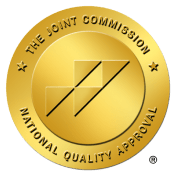Treatment / Relapse Prevention
Relapse Prevention
Preparing Clients to Face the Challenges of Early Recovery
About Relapse
Relapse is a term that is used to describe the return to heavy drug or alcohol use after a prolonged period of minimal or no drug and alcohol use. It is typically caused by a variety of things, such as:

- Stress
- Negative/positive emotions
- Boredom
- Things/places/people that serve as reminders of past drug use
- Lack of support
- Celebratory events
- Lack of coping skills
While these items are by no means an exhaustive list of things that can cause a relapse, it is important to note that relapse can affect anyone and may be influenced by a variety of circumstances and factors. Relapse typically happens in three stages: emotional relapse, mental relapse, and physical relapse.
Relapse Prevention in Addiction Treatment
Relapse prevention is an important aspect of drug and alcohol rehab. As clients progress through their rehab programs at our addiction treatment center, they will work with clinical counselors and recovery specialists to build a solid foundation in sobriety that incorporates a variety of relapse prevention techniques.
Exploring positive and negative effects of continued drug use
Clients will participate in educational lectures and group discussions about the consequences of continued drug use. These discussions are used as a learning tool to help clients understand their behaviors, thoughts, and motivations behind their drug use, as well as the outcomes and consequences that follow.
Identifying high-risk situations
Through discussions about past lapses, relapse dreams, or fantasies about drug and alcohol use, counselors can help clients identify situations in which they would be at high risk for relapse. Talking about these situations allows the client and counselor to work together to recognize warning signs and take action to avoid the situation or manage it in a way that does not put their sobriety at risk.
Self-monitoring
To help reduce the likelihood of relapse, clients will learn how to increase their own self-awareness so they can recognize cravings, red flags, and signs of relapse. By monitoring their own behavioral and emotional cues, they can be better prepared to ask for help when it’s needed most.
Developing strategies to cope with cravings
Throughout drug and alcohol rehab, clients may experience cravings for drugs or alcohol. This is a normal occurrence. Counselors and recovery specialists will work with each client to develop personal strategies to cope with their cravings. In recognizing these cravings as a normal response to a stimulus, clients can learn to manage cravings in a way that works best for them.
Managing lapses
Sometimes relapse is a part of recovery, but relapse does not equate to failure. If an individual does have a minor lapse or even a full relapse in recovery, Nova’s recovery support services are designed to hold that person accountable for their actions while providing support to help get them back on track.
Creating a relapse prevention plan
Each client that completes a Nova drug and alcohol rehab program will leave will a relapse prevention plan in place. This ensures that specific actions will take place in the event of a lapse or full relapse and specific individuals will each play a role in helping the client resume their sobriety.
Relapse prevention is an essential part of every client’s journey at Nova Recovery Center and our program is designed to prepare every individual for the challenges they will face after they leave our addiction treatment center.
where we offer Relapse Prevention
Austin, TX
Houston, TX
San Antonio, TX
Colorado Spring, CO

We look at the following that assist with relapse prevention
- Required meetings
- Weekly drug and alcohol testing
- Sponsor requirement
- Weekly check ins
FAQ
Relapse prevention is a crucial aspect of the recovery journey at Nova Recovery Center, focusing on equipping individuals with the tools and strategies necessary to maintain long-term sobriety. Here are some frequently asked questions about relapse prevention:
What is relapse prevention?
Relapse prevention involves identifying and managing situations, thoughts, and behaviors that could lead to a return to substance use. It encompasses developing coping strategies, enhancing self-awareness, and creating a structured plan to maintain sobriety.
Why is relapse prevention important in addiction treatment?
Relapse prevention is vital because it helps individuals recognize early warning signs of relapse and implement strategies to address them proactively. This approach reduces the likelihood of returning to substance use and supports sustained recovery.
What are the key components of a relapse prevention plan?
An effective relapse prevention plan typically includes:
Self-Assessment and Reflection: Evaluating personal triggers and past behaviors associated with substance use.
- Identifying High-Risk Situations: Recognizing scenarios that may increase the temptation to use substances.
- Developing Coping Strategies: Creating methods to manage cravings and stress without resorting to substance use.
- Support Network: Establishing a list of contacts, such as family members, friends, sponsors, or counselors, who can provide assistance when needed.
- Setting Goals for a Healthy Lifestyle: Defining objectives that promote well-being and support sobriety.
How does Nova Recovery Center incorporate relapse prevention into its programs?
At Nova Recovery Center, relapse prevention is integrated through:
- Educational Lectures and Group Discussions: Exploring the consequences of substance use and strategies to maintain sobriety.
Identifying High-Risk Situations: Assisting clients in recognizing and planning for scenarios that may trigger relapse.
- Self-Monitoring Techniques: Teaching individuals to observe their own behaviors and emotional cues to detect early signs of relapse.
- Developing Coping Strategies: Collaborating with clients to create personalized methods for managing cravings and stress.
- Aftercare Support: Providing continued assistance through aftercare programs to reinforce relapse prevention strategies post-treatment.
What should I do if I experience a lapse or relapse?
Experiencing a lapse or relapse doesn’t signify failure. It’s essential to:
Seek Support Immediately: Contact a trusted member of your support network, such as a sponsor, counselor, or supportive family member.
Reflect on the Experience: Identify the triggers or situations that led to the relapse to better understand and address them.
- Revisit Your Relapse Prevention Plan: Adjust your plan to incorporate new strategies or reinforce existing ones.
Consider Additional Treatment: Engaging in further therapy or attending support groups can provide additional assistance in regaining sobriety.
How can Cognitive Behavioral Therapy (CBT) aid in relapse prevention?
CBT assists in relapse prevention by:
- Identifying Negative Thought Pattern: Helping individuals recognize and alter thoughts that may lead to substance use.
Developing Coping Mechanisms: Teaching strategies to manage cravings and high-risk situations effectively.
Enhancing Self-Control: Empowering individuals to make healthier decisions and resist the urge to use substances.
What role does aftercare play in relapse prevention?
Aftercare programs provide ongoing support following the completion of formal treatment, including:
- Continued Therapy and Counseling: Addressing any emerging challenges and reinforcing coping strategies.
- Support Groups and Peer Networks: Offering a community of individuals who share similar experiences and can provide encouragement.
Sober Living Arrangements: Providing structured environments that support a substance-free lifestyle.
Relapse prevention is a continuous process that requires commitment, self-awareness, and support. By actively engaging in relapse prevention strategies and utilizing available resources, individuals can enhance their resilience and maintain long-term sobriety.
Key Resources on Relapse Prevention Strategies
Emotional Relapse
During this stage, individuals may not be actively thinking about using substances but experience emotions and behaviors that can set the groundwork for relapse. Recognizing and addressing these early signs is vital.
Mental Relapse
This stage involves an internal struggle between the desire to remain sober and thoughts about using substances again. Understanding the mental processes that lead to relapse can aid in developing effective coping strategies.
Physical Relapse
This final stage is characterized by the actual act of using substances again. It’s essential to recognize the progression to this point and implement strategies to prevent it.

For a comprehensive overview of relapse prevention, including the stages of relapse and strategies to maintain sobriety, you can refer to Nova Recovery Center’s Relapse Prevention page.
Nova Recovery Center Near Austin Texas
Additionally, the blog post “Key Components of a Relapse Prevention Plan” provides valuable insights into understanding and managing the different stages of relapse.
Nova Recovery Center Near Austin Texas
By exploring these resources, individuals can gain a deeper understanding of the relapse process and learn effective techniques to maintain long-term sobriety.
We Accept Many Insurances
Schedule a call with us
Nova Recovery Center is dedicated to helping you or your loved one get help. Please call or fill out this form for a confidential consultation. One of our understanding, dedicated advisors will contact you about your options. Begin healing today.



